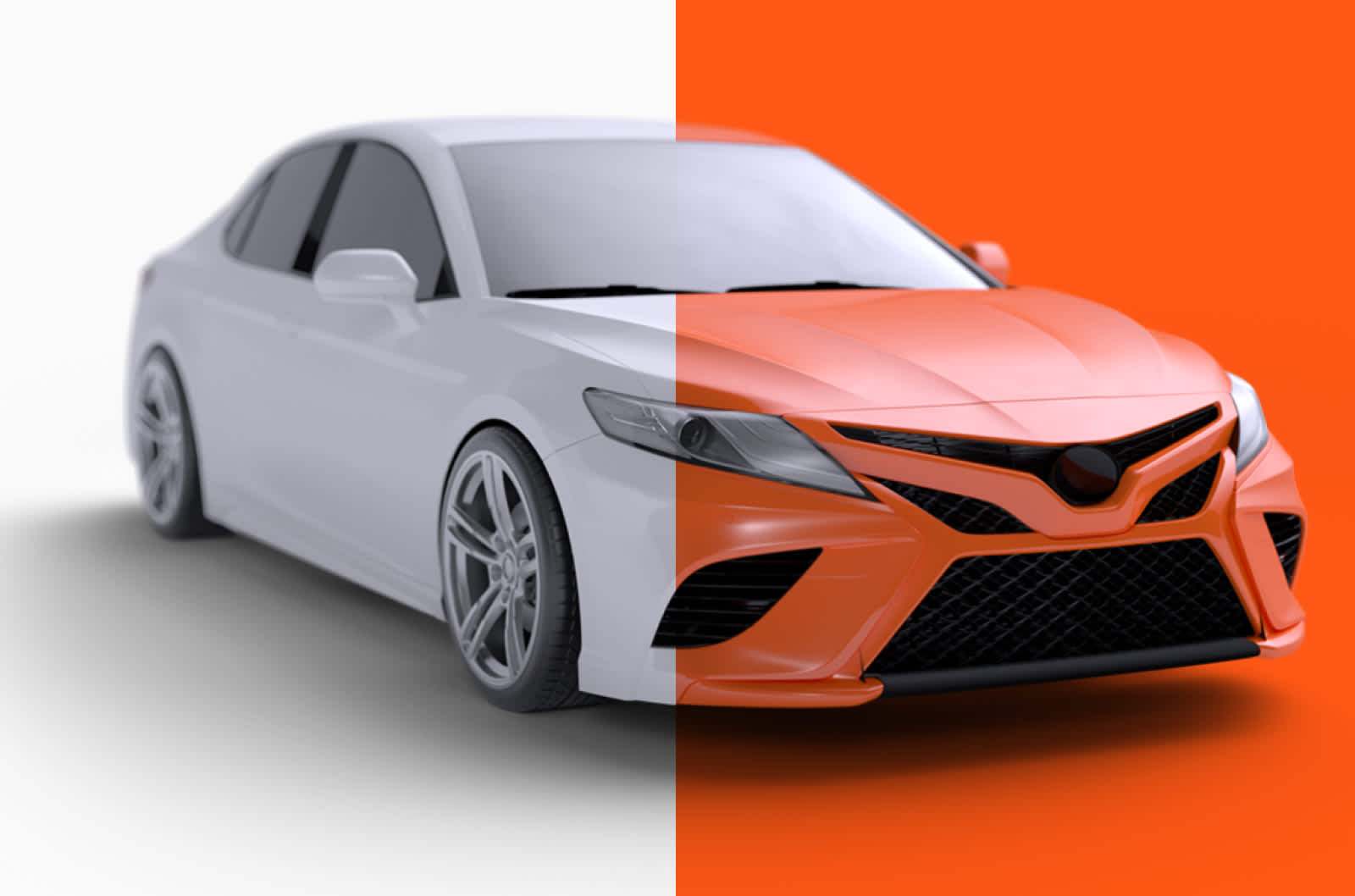November 8, 2019
Car insurance for salvage and rebuilt titles
Buying a new car can be expensive, which is why many drivers look to purchase a reliable used car. Used cars are generally less expensive, but some deals may be too good to be true.
If you’re looking at a vehicle with a salvage or rebuilt title, you need to know how these vehicles may be different than your average used car.
If you’re not well-versed in car mechanics, you may find yourself overwhelmed by repairs for a salvage vehicle. Plus, purchasing car insurance for salvage and rebuilt cars isn’t the same as buying auto insurance for clean title vehicles. Here’s what you need to know about salvage and rebuilt titles and the differences in insurance.

What is a salvage title?
A salvage title (sometimes referred to as a branded title) is generally given to cars that have significant damage, are labeled a “total loss” by an insurance company, or if the damage to a vehicle costs more to fix than the total value of the vehicle.
Salvage vehicle titles vary in each state so you should look into your state’s laws. In Colorado, for example, salvage titles are not given to cars that qualify as a collector’s item. In Ohio, salvage titles can be given to abandoned vehicles (even if they aren’t damaged).
Pros and cons of buying a salvage car
A car with a salvage title isn’t always in bad shape. However, if you’re not confident with car repairs (or don’t have the money to hire a trustworthy mechanic) you may be making the wrong decision buying a salvage vehicle. Let’s dive into the pros and cons to salvage title cars.
Pro: Salvage cars are a great deal
You’ll likely save a lot of money when you buy a salvage title vehicle. Just remember to compare the cost of repairs and inspections over purchasing a typical used vehicle or even a new vehicle. A mechanic can help you understand how much repairs will cost for your car and if it’s worth buying.
Con: You can’t drive it
A salvage title prevents you from legally driving the car. So if you’re itching to hit the road, you’ll need to do repairs and have your vehicle inspected to make sure it’s safe to be on public roadways. This can be costly, and if you don’t know what you’re doing, you may not pass safety inspections (and spend a lot of extra cash for parts during the repair process).
Cars that can’t be repaired may be given a non-repairable title. A vehicle with a non-repairable title can be used for its parts, but you’ll never see it on the road.
Pro: The damage isn’t always severe
You may think of a salvage car as a junk car that needs a lot of complicated repairs. This isn’t always the case. Think about hail damage or vandalism. Though the car may be damaged cosmetically, there’s nothing wrong with the engine or other more expensive parts. Since the car (in this example) is still operable, you can work on earning a rebuilt title to get back on the road. We’ll talk more about rebuilt titles and how to get one later in this blog.
Con: You may not have the entire picture
Whenever you’re buying a used car, you can’t always guarantee that you’re getting the full story of any serious damage or defects to the vehicle. You can get a head start by searching for the vehicle on Carfax to learn why the car has a salvage title. If you’re buying the salvage car from a business, you can check the Better Business Bureau to see if there are any complaints from other consumers who have bought salvage vehicles from them.
No matter how confident you feel in your ability to repair cars, you should avoid salvage vehicles with water damage or bent frames.
Water damage: Once a car is dry, you may think it’s good to go, right? Unfortunately, water damage can lead to faster corrosion of the vehicle, including its electronics and even air bags. While you may not be able to easily spot all flood damage, Consumer Reports suggests inspecting more visible features of your car first, including:
Carpets
Lights
Seat mounting screws
Exposed screws
If they look wet or rusty, there’s likely more water damage that you can’t see in the car.
Bent frames: Structural damage can usually be repaired by a mechanic, but it’s going to cost a lot of money. Most cars made today are built in “unibody” construction. When these cars experience structural damage, the entire structure is compromised, which can lead to additional problems with the vehicle and even become a safety risk.
Get a salvage car inspected
A third-party inspection with a trusted mechanic can help you determine if you want to purchase a salvage vehicle. These inspections usually can cost at least $100, but can help you understand if the car is functioning normally, any damage it has, and if you’re getting a good deal from the seller.
You can either hire an inspector to come on site to look at the vehicle, or take it to their garage for inspection. Getting an inspection can also help find major issues, including:
Frame damage
Poor repair work
Flood damage
Fire damage
Even an inspector can’t guarantee that they’ll find all issues with a vehicle. Some damage uncovers itself as parts are removed during other repair work.
Knowing your state’s Lemon Law
Lemon Law is meant to protect consumers from defects in products (not caused by the user), including new vehicles. Very few states have Lemon Laws for used vehicles.
For example, in Arizona, your used vehicle is covered by Lemon Law if a major component of your car breaks within 15 days or 500 miles of buying the car. However, you don’t qualify to return the car—only to get money for the broken part. Learn how your state handles Lemon Law.
Can a salvage title be insured?
Once you’ve made repairs and passed inspections with your state, you may earn a rebuilt title for your vehicle and will be able to drive (and get insurance) for your car.
What is a rebuilt title?
Rebuilt titles are given to salvage cars that are repaired and pass inspection with the state. When your car has a rebuilt title, it means you can drive the car on public roadways and even sell the vehicle.
How do you get a rebuilt title for your car?
Before you think about a rebuilt title, make sure you’ve done all the necessary work and repairs on your salvage vehicle. Then, you’ll need an inspection to make sure your vehicle is safe to be on the road. Inspection requirements vary by state and there is typically a fee you’ll need to pay to have someone look at your vehicle. However, you’ll likely need an inspector approved by the state to look at your car.
If you live in Tennessee, you’ll need to pay $75 and fill out an application to get a rebuilt title. With the application, you’ll also need to submit:
Current salvage certificate
Color photographs of the vehicle (in damaged condition)
Receipts and serial numbers for any parts you bought
Rebuilt title vehicles in Tennessee must also pass an anti-theft inspection.
If you live in Georgia, getting a rebuilt title for a salvage vehicle is a little more difficult. If you’re not a licensed rebuilder, you’re out of luck on getting a rebuilt title until you can show you’re licensed. (You can apply for a license with the Georgia Board of Used Vehicle Dealers.)
Next, your vehicle must pass inspection by an approved private inspector or station before it’s painted. To get an inspection, you’ll need to do some paperwork and include the following in your application:
Form MV-1
Form T-22R
Form T-129
At least one photograph of your car before repairs
Original salvage title
Receipts and serial numbers for any parts you bought
A copy of your rebuilder’s license
$100 inspection fee
These are just a couple examples of how different requirements for a rebuilt title can be by state. Be sure to follow your state’s requirements to get a rebuilt title. Your local DMV can help.
Can you get full coverage on a rebuilt title?
“Full coverage” is not an actual coverage you can purchase. When people ask for full coverage insurance, it typically means having Liability insurance, Comprehensive insurance, and Collision insurance as part of your car insurance. With the Root app, you can decide which combination of coverages is right for you.
Root can help insure your rebuilt title car
We offer rebuilt title insurance as long as you’re able to provide us with a Vehicle Identification Number (VIN) for the vehicle (located on the driver’s side dashboard) and the vehicle satisfies our other underwriting criteria for coverage.
At Root, we base your car insurance rate primarily on how you drive. That means good drivers could save more on their car insurance with Root compared to other insurance companies, even while driving a rebuilt title vehicle.
This blog is written for educational purposes only and does not constitute as legal advice. Root does not endorse any third-party information.
Related Posts

April 25, 2019
How to stay focused while driving
People admit to spending 13 minutes a day on their phones while driving. Here are 13 tips to help you give your full attention to focused driving. Read more

February 18, 2019
5 tips for switching car insurance companies
Changing your car insurance company is not as complicated as you might think, and switching could amount to big savings that are worth a small hassle. Read more

November 25, 2019
Can credit score impact your car insurance rate?
If you’re having trouble getting an affordable rate on insurance it might be your credit score. Traditional insurance companies use it to determine your rate. Read more